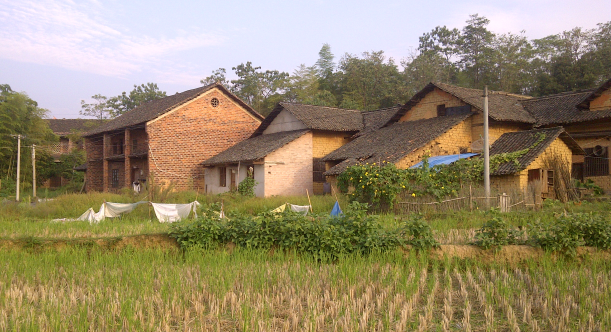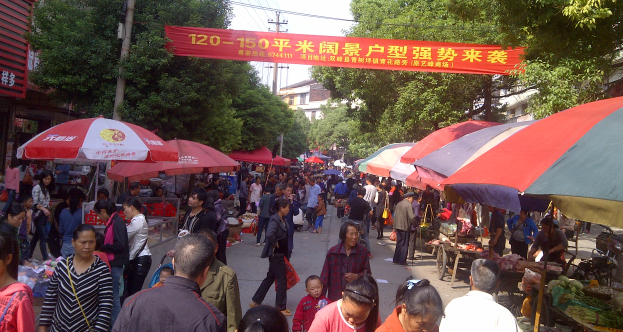Although I’m overdue for an update on WAIDAS and have some exciting things to share on that front, it would be a shame if I didn’t even acknowledge some of the things that have happened while I was away from the keyboard. Today seems like a fitting day to write about that, since I have dedicated it a mental health day.
So, about a month and a half ago I moved from northeast America to the city of Xi’an in central China. On the weekends I teach English, and during the week I develop my game. It’s a wonderful situation in that the teaching fully supports me, yet gives me more than enough freedom to pour my sweat and tears into WAIDAS.
This isn’t the first time I’ve been in China, or in Xi’an even; I studied abroad here for about five months. So while it took some time to get used to my new job, my location inspires just as much sense of nostalgia as it does homesickness.
Then, on October 1st, I took a road trip with a Chinese couple that I’m good friends with to the southern province of Hunan. It was the time around National Day, which is seems to be a combination of the American holidays July 4 and Thanksgiving: lots of fireworks, and lots of family reunions. So we drove to the husband’s childhood home in the sprawling metropolis of Shuangfeng, Hunan.
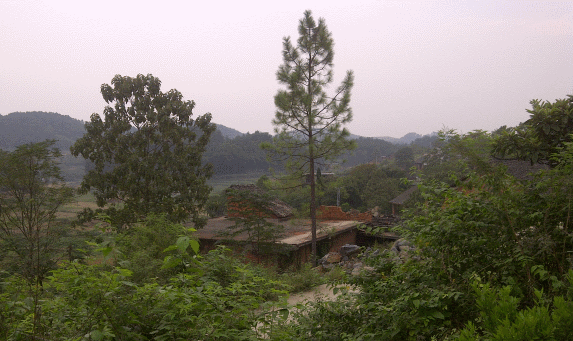
After a 15 hour drive, we arrived at his house around 10PM. As we pulled up, I heard a noise which in most other contexts I would have assumed was my imminent death; but in this case, it was the sound of a full wheel of firecrackers being set off a meter from the car. I then got to meet the husband’s family, nearly all of whom spoke a deep Shuangfeng dialect, rendering my three years of Mandarin studies near useless. That was by far the biggest shame of the trip, since I would have loved to have actual conversations with these people; instead, it was a challenge to even understand single-word commands.
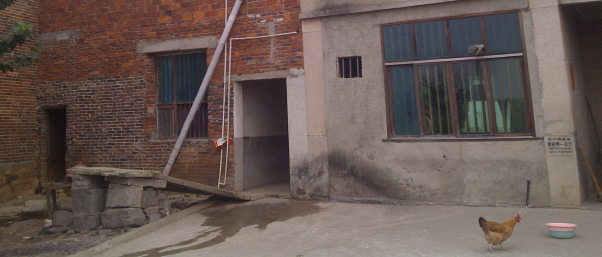
This was a farm-house through and through. On the opposite side of the small dirt road were wheat fields; chickens scavenged around, and in, the house; pigs resided in a sort of stable that was attached to the rest of the house. Generally anything we ate was killed within a twenty yard radius of the house. And eat we did, for if rural Chinese people are anything, they are hospitable. Perhaps most of the conversation I had with the family involved them telling me to eat — and me replying that I was!
While the husband may have come from here, he spent enough time outside of it and in the city to speak much more standard Chinese. Much of his family and friends, however, have stayed here since birth — I got to meet cousins, grandparents, aunts, uncles, nieces and classmates of his, most of whom I think have been in Shuangfeng for, well, ever. This certainly left an impression on me, and not just for the obvious reason that I’ve come far away from home — but also because my family immigrated to America (on both maternal and paternal sides) not so long ago, and is in comparison very stretched and scattered, with faint geographical affiliations. In contrast, the husband called this the land of 楚国, a state that existed more than two thousand years ago.
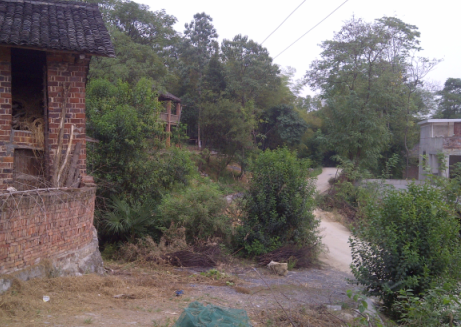 None of that is to imply that this is somehow a pure land before or without time, of course! While the house that we stayed at was more rural, it actually is a bit outside of Shuangfeng proper. The center of Shuangfeng, while referred to by Chinese people as still a part of the countryside, could pass as a small city in Pennsylvania. I noticed several relatives wearing clothes with English letters on them, which is the stylish thing to do. The husband has two nieces, both of whom have been studying English. And one moment that stuck out to me happened when we were trap fishing in a small lake, and a modern Chinese song played faintly from a country home in the distance. The wife, for whom this was her second time staying in Shuangfeng, began humming along absent-mindedly. The show that I’ve seen advertised on the side-wall of my apartment elevator (小爸爸) could be observed on the TV sets of several houses I visited while I was there.
None of that is to imply that this is somehow a pure land before or without time, of course! While the house that we stayed at was more rural, it actually is a bit outside of Shuangfeng proper. The center of Shuangfeng, while referred to by Chinese people as still a part of the countryside, could pass as a small city in Pennsylvania. I noticed several relatives wearing clothes with English letters on them, which is the stylish thing to do. The husband has two nieces, both of whom have been studying English. And one moment that stuck out to me happened when we were trap fishing in a small lake, and a modern Chinese song played faintly from a country home in the distance. The wife, for whom this was her second time staying in Shuangfeng, began humming along absent-mindedly. The show that I’ve seen advertised on the side-wall of my apartment elevator (小爸爸) could be observed on the TV sets of several houses I visited while I was there.
While I didn’t see any particularly famous sights, I don’t really care too much about those. It’s the mundane things that are more interesting and meaningful, because it’s the mundane things that make the world.
The time spent vacationing and travelling certainly bit into development time. I arrived back in Xi’an on the evening of October 7, so I was gone for about a week. But it’s experiences like these that enrich, well, everything — not excluding game design. There is a strain of advice that I’ve heard bouncing around in the independent community which cautions against locking yourself away in order to crunch out your game. And this is advice I’d echo any day, as much as I have to isolate myself at times to get work done. Because every aspect of the game I’m working on which I like most about it, which allows me some amount of optimism in its prospects, and which keeps me convinced that I have to finish it and release it, is something that I gained from a time that I wasn’t expecting to gain anything from.

